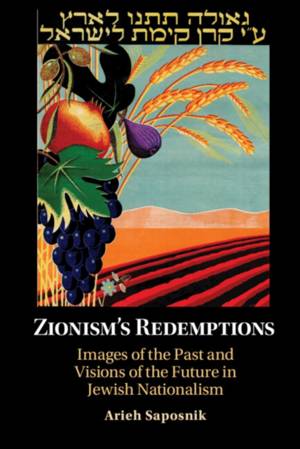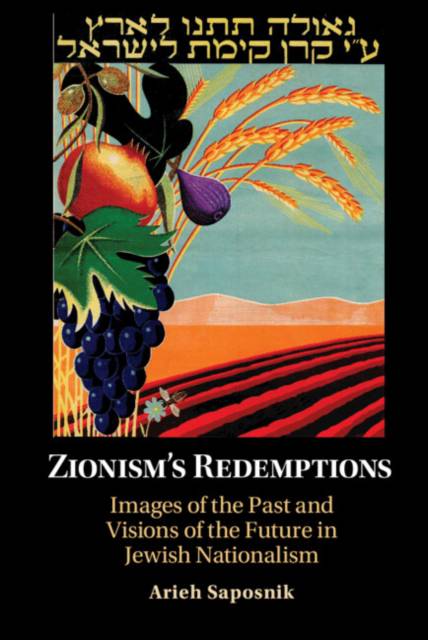
- Afhalen na 1 uur in een winkel met voorraad
- Gratis thuislevering in België vanaf € 30
- Ruim aanbod met 7 miljoen producten
- Afhalen na 1 uur in een winkel met voorraad
- Gratis thuislevering in België vanaf € 30
- Ruim aanbod met 7 miljoen producten
Zoeken
Zionism's Redemptions
Images of the Past and Visions of the Future in Jewish Nationalism
Arieh Saposnik
Hardcover | Engels
€ 144,45
+ 288 punten
Omschrijving
In this volume, Arieh Saposnik examines the complicated relations between nationalism and religious (and non-religious) redemptive traditions through the case study of Zionism. He provides a new framework for understanding the central ideas of this movement and its relationship to traditional Jewish ideas, Christian thought, and modern secular messianisms. Providing a longue-durée and broad view of the central themes and motivations in the making of Zionism, Saposnik connects its intellectual history with the concrete development of the Zionist project in Israel in its cultural, social, and political history. Saposnik demonstrates how Zionism offers lessons for a politics in which human perfectibility continues to serve as a guiding light and as a counter-narrative to the contemporary politics of self-interest, self-promotion and 'post-truth.' This is a study that bears implications for our understanding of modernity, of space and place, history and historical trajectories, and the place of Jews and Judaism in the modern world.
Specificaties
Betrokkenen
- Auteur(s):
- Uitgeverij:
Inhoud
- Aantal bladzijden:
- 300
- Taal:
- Engels
Eigenschappen
- Productcode (EAN):
- 9781316517116
- Verschijningsdatum:
- 18/11/2021
- Uitvoering:
- Hardcover
- Formaat:
- Genaaid
- Afmetingen:
- 152 mm x 229 mm
- Gewicht:
- 498 g

Alleen bij Standaard Boekhandel
+ 288 punten op je klantenkaart van Standaard Boekhandel
Beoordelingen
We publiceren alleen reviews die voldoen aan de voorwaarden voor reviews. Bekijk onze voorwaarden voor reviews.











